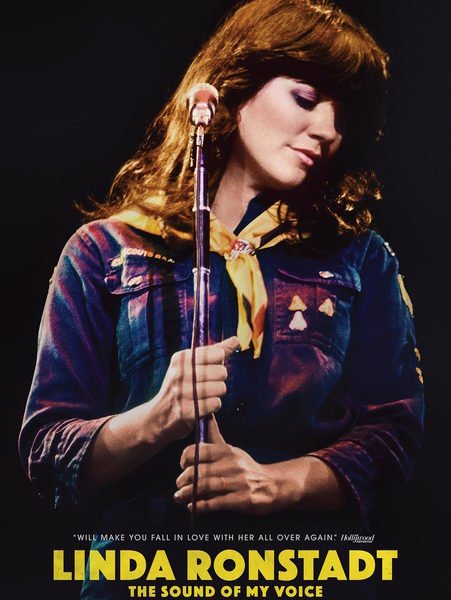
10.26.2019
LINDA RONSTADT
“In very different times, my reaction to having my songs recorded by other singers was downright suspicious, territorial and, at times even a little hostile. To say the least, I lacked grace.
Five years ago, shortly before an encore performance of “Alison”, I told the audience at the Hollywood Bowl, that it was Linda Ronstadt’s rendition of that song – which was featured on her big hit album “Living In The U.S.A.” – that kept petrol in our tour bus at a time when we were sharing double bill with everyone from Talking Heads to Eddie Money for a $1.99¢ ticket.
Linda Ronstadt and I have never met, so the stage seemed the next best place for such an acknowledgement.
I recently went to see “The Sound Of My Voice” at the Film Forum in NYC on an afternoon double-bill with the new documentary about Miles Davis. While the Miles film was filled with his wonderful music and startlingly vivid photographs and footage, the film mostly told me things I already knew, while the Linda Ronstadt movie was a completely surprising, clear-sighted and unsentimental look at her career, revealing an intelligence, self-awareness and sense of humour that was not always apparent in some of her male contemporaries from the early ’70s
I used to joke that musicians invited some terrible curse by taking on my songs and how, having recorded one of my songs, Linda decided to push her luck by recording three more on her album “Mad Love” and the next thing she was singing Gilbert & Sullivan.
Of course, as someone who has spent their career doing the exact opposite of what has been expected of me, this was really a joke that was told against myself.
Nevertheless, I can’t imagine a G&S operetta was actually the top of the record company wish list for one of their top recording superstars even if the piece ended up being a spectacular success.
The film tells us that Linda Ronstadt had to persuade her label boss at the WEA record group to bankroll her album with Nelson Riddle in a way that I was never obliged to wrangle with Warner Brothers, regarding the funding of “The Juliet Letters” but then my pop and rock and roll records weren’t selling triple platinum, so they had less to lose.
I can’t think of an artist of her commercial status who would have even proposed such a collaboration with Nelson Riddle let alone two albums of Mexican folk songs but the documentary shows these records to be a testament to artistic curiosity and daring.
It was a 2019 performance of one of those traditional songs, filmed in Linda’s front room, flanked by her cousins that brought me to uncontrollable tears, so much so that I had to slip out of the theatre before the lights came up after the final credits.
My father’s Parkinson’s related decline saw his senses gradually eroded, until even his sense of taste for a dram was lost but even after his speech was reduced to a hoarse whisper, he was able to still negotiate a challenging tune like “The Way You Look Tonight”.
Linda’s commentary is frank about the impact of her illness on her ability to control her voice and sing to her own satisfaction but in that precious moment she appears undimmed in the way she could access the emotion of song, in the company of those family voices.
This version of “Party Girl” is a clip from a performance around the release of “Mad Love” – a memento of my less generous youth in so many ways but I urge you to see this wonderful documentary, whether or not you regard yourself a fan of the singer or her musical choices. Perhaps there are human qualities that endure beyond the fashionable poses we may have once affected.
With much respect. Elvis Costello.